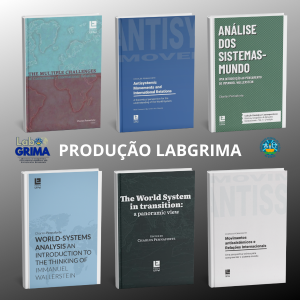What can Brazil and the international community expect from the outcome of its presidential election? There is a widespread consensus both in Brazil and abroad that Brazil has suffered great wear in its international image. In the last 30 years Brazil has gone through numerous economic and even political crises, but nothing that threatened the democratic process with possible ruptures of power.,
However, the election of Jair Bolsonaro in 2018 with a conservative, undemocratic and far-right agenda placed Brazil on the map of international political regression. Of course, Jair Bolsonaro is part of a process that has his exponent in Donald Trump who gave visibility to this conservative agenda.
But all that can change.
According to the last electoral surveys (August 2022), former President Luiz Inácio “Lula” da Silva, has reemerged into the electoral stage with great force and continues to be the first candidate in the voting intentions.
Lula da Silva the same leader of the Workers’ Party (PT) which suffered in 2018 a powerful lawfare action by sectors of the Brazilian Judiciary system, later confirmed by Supremo Tribunal Federal (the Supreme Court of Brazil), by abolishing all his corruption processes involving the former president and his convictions by confirming the partiality of the then federal judge Sergio Moro, leader of the famous “Lava Jato” (Car Washing) Operation.
From the internal Brazilian point of view, for most Brazilians -especially the poorest-, the Lula Era (2003–2010) was a period of economic growth, poverty reduction, low unemployment, and prosperity.
When he left the presidency, Lula had 80% approval giving him the title of “best president of Brazil” since the beginning of the widespread use of public opinion surveys in the 1990s. That is the memory that millions of Brazilians have of the veteran political leader.
The second-place candidate, Jair Bolsonaro, keeps his far-right electorate stagnant in the range of 30% of votes that are insufficient to guarantee victory against Lula in both the first and second electoral rounds (ballotage).
The meager economic governance alongside numerous cases of corruption involving family members and political allies, in addition to the terrible management of his negationist government in the covid-19 pandemic that (if not caused), contributed to the death of more than 600 thousand people to date.
Except for some major unexpected changes until October 5, the final dispute will take place in the second election round (ballotage).
The political groups opposed to the “Polarization” between Lula and Bolsonaro, will try to articulate a “Third Way”. However, the electorate is not much enthusiastic about such proposals. Both Ciro Gomes, candidate of the PDT, and senator Simone Tebet of the MDB — the largest political party in Brazil — aim to present themselves as an alternative to the two best-placed candidates in the surveys. But, they don’t arouse enthusiasm among voters, and both of them will hardly become the “surprise” of this election.
The Brazilian elections of 2022 will be the most important since the process of redemocratization started after the end of the Civic-Military Dictatorship (1964–1984).
The traditional Brazilian political axis of the dispute between the center-left (PT) and the center-right represented by the Brazilian Social Democracy Party (PSDB) almost three decades ago was changed to the competition between the center-left (PT) and the far-right led by the Liberal Social Party (PSL) of Jair Bolsonaro. What is at stake is much more than the return of former President Lula to the Planalto Palace, is more like a referendum on his political role in recent years.
The country so admired once for its ability to offer solutions that impact positively the world, has become the symbol of contempt for the Environment and Human Rights.
In case Luiz Inácio Lula da Silva is elected we can visualize Brazil’s return to the international stage with a very different perspective from the current one. Such will imply greater Brazilian proactivity both in Latin America and globally, mainly through the BRICS. A Brazil active in the defense of a multipolar world is undoubtedly the hope for a more balanced and fair international system.
https://valdaiclub.com/a/highlights/brazil-quo-vadis-change-of-direction/

